The global community relies on the construction industry for prosperity, changing the skyline, and connecting it by infrastructure, which adds between 4-6 percent of the average GDP of a country. The demand for infrastructure has increased drastically in the last twenty years, and it is yet to taper off.
The industry in 2025 is more ambitious and globally connected than ever before, and it owes its existence to the large engineering, procurement, and construction (EPC) companies providing megaprojects previously impossible due to geographical, technological, and environmental obstacles.
These are not ordinary road-building and tower-building companies: these firms are creating whole smart cities and renewable energy grids, and propelling the world into the future with their innovative transport systems that will determine how the world operates, lives, and moves.
The largest construction companies in the world, such as China State Construction Engineering, China Railway Group, Vinci, ENKA, Hochtief, and Larsen & Toubro companies play a significant role in ensuring this demand, which provides employment and economic interest. This blog discusses the largest construction organizations in the world in 2025 according to revenue, power, and global presence.
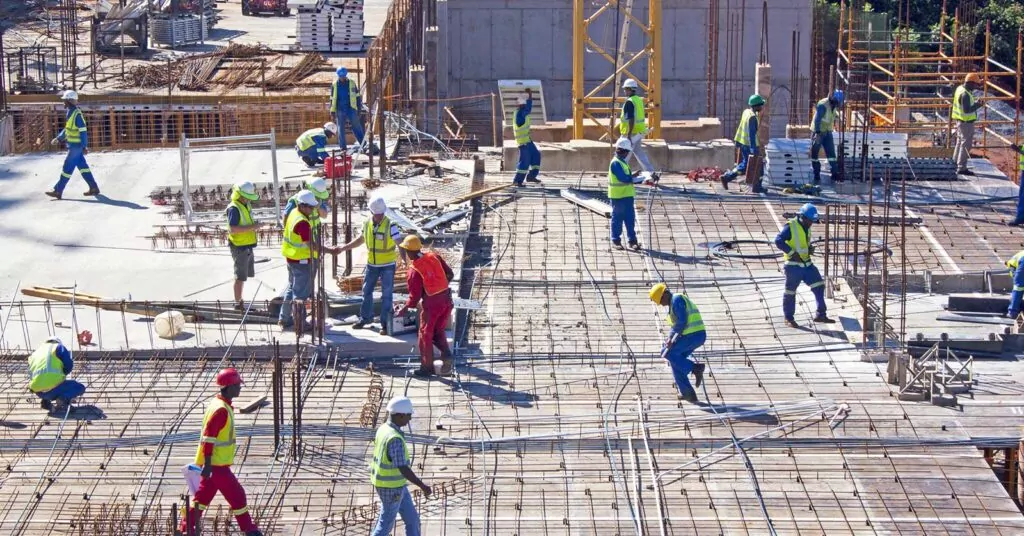
The 10 Biggest Construction Companies in the World
There are thousands of construction firms in the world, but only a few of them hold the capacity, technical knowledge, and financial strength to execute multibillion-dollar projects across different continents with construction innovation. Such high-end firms oversee the whole process of designing, logistical planning, and down to complete-scale infrastructural deployment. By 2025, these firms will be pioneers in terms of sustainability, digital construction, and megaproject implementation.
China State Construction Engineering Corporation (CSCEC)
The CSCEC (China State Construction) is the biggest construction company in the world, founded in 1957. It is a state-owned enterprise that conducts various construction projects such as real estate, infrastructure construction, international contracting, housing, skyscrapers, airports, and mega-projects in the city.
The company operates in more than 100 countries while being a significant part of the Belt and Road Initiative, and completing projects in Asia, Africa, and the Middle East. They were also involved in building the mega Hong Kong-Zhuhai-Macau bridge, which is among the longest sea-crossing bridges in the world.
Headquarters: Beijing, China
2025 Revenue (est.): $320+ Billion
Workforce: ~335,000+
Notable Projects:
Hong Kong-Zhuhai-Macau Bridge
New Hong Kong Airport 3rd Runway
Mombasa-Nairobi Standard Gauge Railway
China Railway Group Limited (CREC)
CREC is a leading contractor in the world dealing with rail and infrastructure, including high-speed rail, tunnels, bridges, and all underground activities. Its engineering division stands out because of its construction in extreme geographical environments. It has an impressive market value, a common occurrence on the Shanghai Stock Exchange, and an annual revenue that exceeded 110 billion dollars.
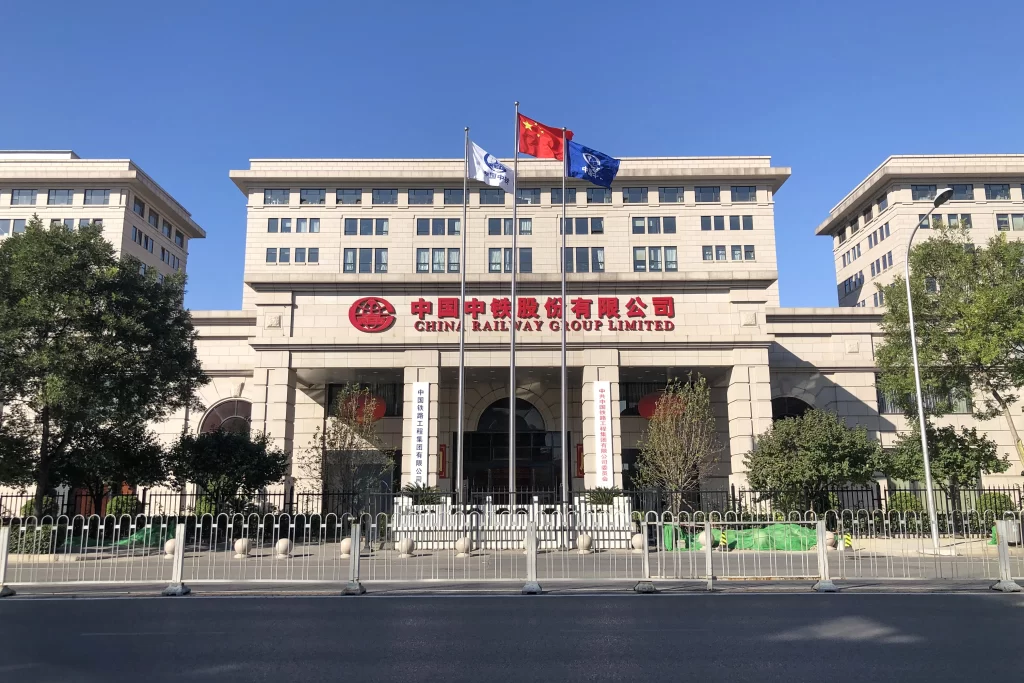
They have developed a vast number of railways, which play a key role in enhancing the transport infrastructure in Asia, thereby significantly increasing growth in the economy in Asia. The ability to connect distant areas is evident in projects like the Beijing-Shanghai High-Speed Railway and their international projects, like the railway construction in East Africa.
Headquarters: Beijing, China
2025 Revenue (est.): $168 Billion
Workforce: ~290,000+
Notable Projects:
Beijing-Shanghai High-Speed Railway
Addis Ababa-Djibouti Railway
Dujiangyan M-TR Tourist Passenger Dedicated Line
VINCI SA
VINCI is a multinational that has its headquarters in France and deals in construction, energy, and concessions. Having an extensive project portfolio, VINCI has established itself as one of the largest European and global construction enterprises. It has a huge global presence, whose 2023 revenues earned it €53.6 billion, and is also a pioneer of construction tech innovation and sustainability in the construction industry.
They also lead strategic projects such as the Grand Paris Express, signifying their determination to improve urban living sustainably. Their company is committed to offering eco-friendly models and renewable energy projects that contribute to a better future.
Headquarters: Paris, France
2025 Revenue (est.): $75 Billion
Workforce: ~222,000+
Notable Projects:
Grand Paris Express
Nikola Tesla Airport Renovation
Femern Tunnel
ACS Group
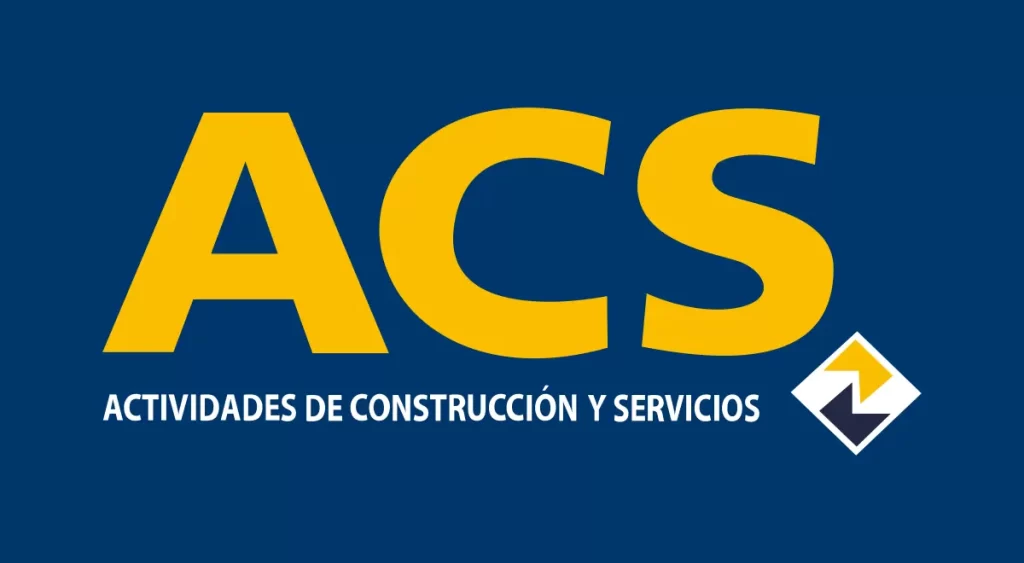
ACS (Actividades de Construcción y Servicios), S.A. is a Spanish firm that specializes in civil, engineering, and construction services and telecommunication. It ranks among the top construction companies of the world, with its subsidiary companies such as Hochtief (Germany) and Turner Construction (USA).
They have led many big projects such as the Alqueva Dam and the large networks of high-speed rail in Europe, generating a massive 37.3 billion euros in revenue last year. ACS was also an important contributory factor in the building of the SoFi stadium, and it demonstrates their potential capabilities in the building of large sports facilities.
Headquarters: Madrid, Spain
2025 Revenue (est.): $45 Billion
Workforce: ~190,000+
Notable Projects:
Alqueva Dam
The SoFi Stadium, Los Angeles
Torre de Cristal and Torre Espacio skyscrapers
Bechtel Corporation

Bechtel is the biggest privately owned construction and civil engineering company in the US. In 2017, it became the biggest construction firm in the United States and the 8th-biggest private company in America. This company has a legacy of more than 125 years and focuses on large infrastructure, energy, and defense projects, with an annual revenue of approximately 21.8 billion dollars in 2023.
They also deal with energy, transport, procurement, and government services. Bechtel was also the company behind the Channel Tunnel construction, which is one of the most important engineering projects that linked the UK and France. They have reshaped the future of construction by fusing innovation with sustainability with their renewable energy plants and large-scale buildings.
Headquarters: Reston, Virginia, USA
2025 Revenue (est.): $22 Billion
Workforce: ~50,000+
Notable Projects:
Hoover Dam
Channel Tunnel
Riyadh Metro Project
Hochtief AG
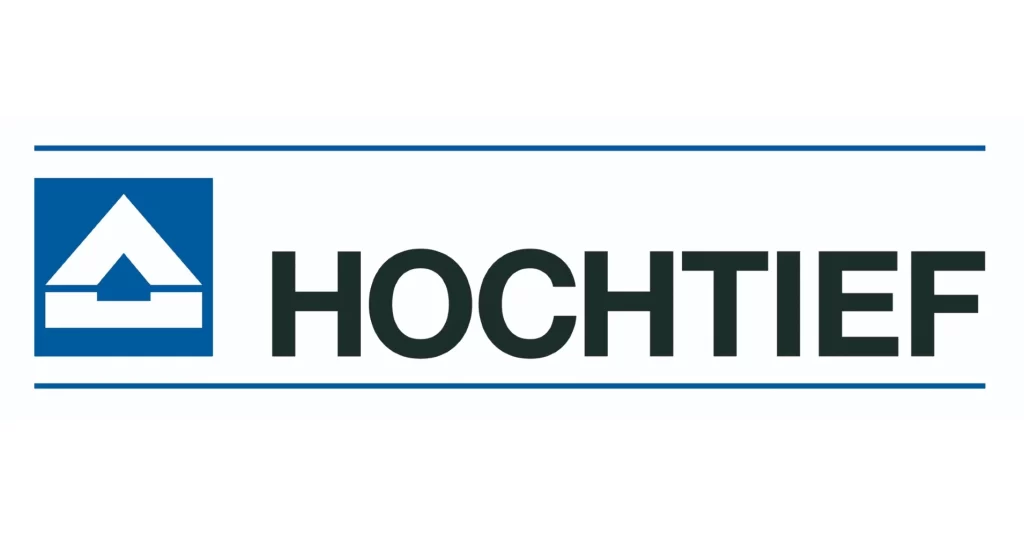
HOCHTIEF is a well-recognised German construction company with particularly accurate and efficient infrastructure and transport projects, standing at a remarkable annual income of fees of 25.1 billion euros. It is well known for its engineering achievements, particularly tunnels, bridges, and aviation facilities.
The Elbphilharmonie, a modern architectural and acoustical masterpiece in Hamburg, is also being built by Hochtief. Turner, the subsidiary of HOCHTIEF, offered construction management services for the development of Burj Khalifa in Dubai, which was featured as the Largest Construction Projects In The World.
Headquarters: Essen, Germany
2025 Revenue (est.): $25 Billion
Notable Projects:
Elbphilharmonie, Hamburg
Sydney Metro Upgrade
Los Angeles International Airport Expansion
Skanska AB
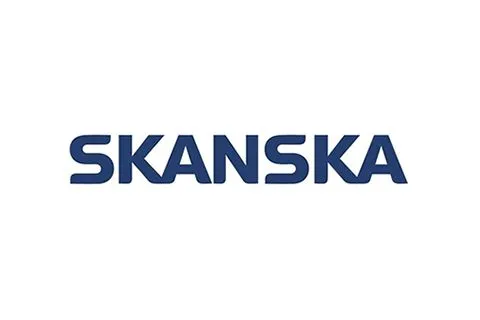
Skanska AB is a Stockholm-based multi-national firm that specializes in construction and project development and has offices in the Nordics, Europe, and North America, and incorporates innovation, safety, and environmental responsibility into the mega infrastructure and commercial construction. To provide smooth coordination and live construction monitoring on the site, Skanska uses Buildertrend Net-style project management systems.
In 2024, Skanska reported revenue of SEK 177.2 billion ( 17.3 billion), which is up by 13 percent compared to the previous year, with the U.S. market registering significant growth. This Swedish company is known for its advanced technologies in construction and eco-friendliness.
Headquarters: Warfvinges väg 25, Stockholm, Sweden group.skanska.com
2025 Revenue: US$17 billion
Workforce: ~26,500 employees
Notable Projects:
New Karolinska Hospital Solna
West Link (Västlänken)
Sjösättningen, Malmö
Bouygues S.A
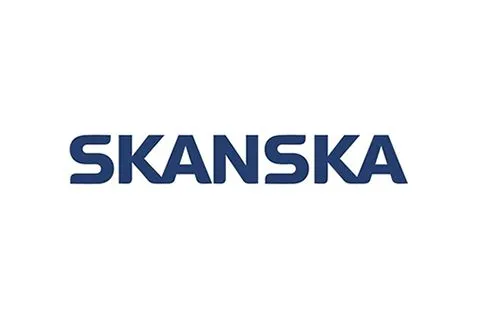
Bouygues is a large multinational corporation based in Paris, which has diversified businesses in the construction market, real estate, energy services (through Equans), and telecoms. Their construction company is back up with many achievements, especially in energy and international infrastructure, driving revenues up to €56.75 billion.
Bouygues trades on the Euronext Paris stock exchange and is a blue chip on the CAC 40 stock market index. Bouygues group excels in both the construction sector and telecommunications industry, raking in yearly proceeds of 38.5 billion Euros. They are bringing in a modern touch in urban areas by constructing buildings such as the new Paris Law Courts.
Headquarters: Paris, France
Revenue: €35.55 billion
Employees: 130,500
Notable Projects:
Paris Law Courts
Green Office in Meudon
Melbourne Metro Tunnel
Technip FMC

TechnipFMC is a world-leading construction company in the field of energy projects, technologies, and systems. Their strongest specialization is subsea engineering, offshore construction, and integrated project delivery. TechnipFMC is located in the United Kingdom and offers a complete range of engineering, procurement, and construction (EPC) services to the oil and gas sector.
They specialize in highly complex subsea, onshore/offshore, and surface projects, making them an important stakeholder in the energy market. Their innovative iEPCI approach has simplified the complex offshore projects by integrating engineering, procurement, and installation into a one-stop service delivery channel.
Headquarters: Newcastle upon Tyne, England
2025 Revenue: $13.41 billion.
Workforce: Approximately 25,300 employees
Notable Projects:
- Johan Sverdrup Phase 3 (Equinor)
- Gato do Mato field (Shell)
- Coral South FLNG subsea systems
- Arctic LNG 2 EPC scope
Ferrovial S.A.

Ferrovial S.A. is the most well-known European infrastructure and mobility firm that has a solid track record of providing great-value transport systems, smart platforms, and public-private partnerships. Originally in Spain, Ferrovial has become an international corporation with its major business path concentrated on toll roads, airport management, energy transition, as well as urban mobility.
Ferrovial is well recognized in sustainable infrastructure and has made bigger investments in smart highways, electric transport networks, and digital infrastructure services. They control various influential projects, including large airports, such as the expansion of Heathrow Airport, to the massive toll roads that improve accessibility.
Headquarters: Madrid, Spain (legal registration moved to the Netherlands in 2023)
2025 Revenue: €9.14 billion
Workforce: Around 25,500 employees
Notable Projects:
- Heathrow Airport Terminal 2
- Farringdon Station (Crossrail project)
- LBJ Expressway and I-77 Toll Road
- JFK Airport Terminal One redevelopment
- Guggenheim Museum
A Quick Overview of the Top Ten Largest construction companies in the world 2025
| Company | Headquarters | Estimated Revenue (2024/25) | Employees | Notable Projects | |
| 1 | China State Construction Engineering Corporation (CSCEC) | Beijing, China | $320+ billion | ~335,000 | Smart cities in Africa, Beijing Daxing Airport, mega housing |
| 2 | China Railway Group Limited (CREC) | Beijing, China | $168+ billion | ~290,000 | Jakarta-Bandung HSR, African rail systems |
| 3 | VINCI SA | Paris, France | ~$75 billion (€53.6B) | ~222,000 | Grand Paris Express, Femern Tunnel, Nikola Tesla Airport |
| 4 | ACS Group | Madrid, Spain (HQ), Amsterdam (Legal) | ~$45 billion (€40–45B) | ~190,000 | SoFi Stadium, Sydney Metro, and US highway concessions |
| 5 | Bechtel Corporation | Reston, Virginia, USA | ~$22 billion | ~50,000+ | Hoover Dam, Riyadh Metro, LNG facilities, Channel Tunnel |
| 6 | Hochtief AG (ACS Subsidiary) | Essen, Germany | ~$27 billion | ~34,000 | Elbphilharmonie, Crossrail London, infrastructure in Australia |
| 7 | Skanska AB | Stockholm, Sweden | ~$18 billion | ~30,000 | LaGuardia Terminal B (NY), Oslo Metro, sustainability-certified buildings |
| 8 | Bouygues S.A. | Paris, France | ~$42 billion | ~130,000 | A41 Motorway, Tour First (Paris), Telecom & media infrastructure |
| 9 | TechnipFMC | Newcastle upon Tyne, UK | ~$9 billion | ~25,300 | Johan Sverdrup Phase 3, Arctic LNG 2, Gato do Mato (Brazil) |
| 10 | Ferrovial S.A. | Madrid, Spain (HQ), Amsterdam (Legal) | ~$10 billion (€9.14B) | ~25,500 | Heathrow T2, JFK Terminal 1, LBJ Expressway (US), Crossrail |
Final Thoughts
As we look back at the great heights and worldwide influence of the largest construction firms in the world by the year 2025, there is only one conclusion to be made: these companies are shaping the skyline, as they are constructing the future. Their projects are not limited to steel, concrete, and new building materials, as they go all the way to high-speed railways across continents and smart cities in the desert sands. They symbolize ingenuity, the ability to persevere, and making the future of construction better.
Whether it’s the offshore energy projects with TechnipFMC, the housing projects of CSCEC, or the environmentally-friendly designs of VINCI and Skanska, each of these companies highlights an exclusive stand. They promote sustainability, digitalization, and international implementation, leading to intelligent, quicker, and cleaner constructions. You can also stay updated about the recent market trends and project updates by subscribing to the construction industry newsletters of the respective company.
Frequently Asked Questions
How can I stay up-to-date with the latest news from top construction companies?
Subscribing to newsletters of construction companies, keeping track of the press releases of the companies, or going to international construction expos, you may monitor current news and trends, as well as connect with the professionals via such tools as LinkedIn.
What is the role of technology in modern construction companies?
AI-based scheduling, robotics, drones, 3D printing, modular construction, and more enhance work efficiency and reduce errors, enabling companies to complete tasks in less time than before.
What challenges do large construction firms face in 2025?
Nonetheless, even these giant companies have to deal with a number of difficulties such as disruptions in supply chains, strain in labor, an increase in costs of materials, complexity of regulations, and the necessity to rapidly adapt the technology.
How do construction companies manage projects across multiple countries?
Multinational project management, regional headquarters, and multinational labor force are being used by the biggest construction companies in the world to carry out border-transcending projects. They use digital technology such as BIM, cloud-based collaboration systems, and real-time supply chain monitoring as solutions to geographical and time distance coordination.

